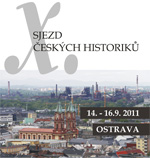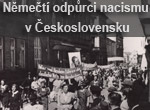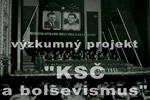The Institute History
Hlavní stránka » About the Institute » The Institute History »
The Institute was founded in 1990 on the initiative of the history commission of the Civic Forum. The idea was sparked by the practice current in most West-European countries, where institutions for research into recent history had already been in existence for a number of decades. The aim was to establish a workplace for an independent exploration of Czechoslovak history during the period 1938-1989. That this phase of Czechoslovak history needed to be investigated seemed particularly important, and indeed urgent, in the post-November milieu in view of the fact that during the time of communist control, any research undertaken was subject to constant ideological supervision, background checks on participants and censorship of findings. An all-embracing knowledge of its communist past was seen as one of the prerequisites for Czechoslovakia taking its place among European democratic nations. It was in this context that the Institute of Contemporary History was set up. It should be noted that the Institute was particularly fortunate at this juncture in being able to rely upon the direction of Vilém Prečan, whose knowledge and expertise, gained as an exile in West Germany, were invaluable in guiding the Institute through the initial period of its formation.
During those early years, the Institute as we know it today took shape. The building which houses its centre of operations in Vlašská Street was reconstructed, with, it should be added, the generous support of the Konrad-Adenauer-Stiftung. Likewise, the library came into being. Publication activities, too, began shortly after the Institute’s foundation. As mentioned earlier, the journal Soudobé dějiny (Contemporary History) was first published in 1993. A bibliography of contemporary history, which is updated on a continuous basis, also saw the light of day. Indeed in 1998 when Vilém Prečan handed the mantle over to his successor, the present director Oldřich Tůma, the Institute was an established and respected institution. This was gratifyingly borne out in 1999 when the Institute was awarded the Hannah Arendt Prize by the Institute für die Wissenschaften vom Menschen and Koerber-Stiftung.
The turn of the century brought with it a generation change. Gradually, the band of researchers who had built up the Institute, those individuals whose careers had been so violently disrupted in the two decades after 1968, left. They were replaced by a younger group of researchers who had trained in the new conditions prevailing after 1989. In 2002, following on a decision made by the Czech Government, the Centre for the Documentation of Property Transfers of Cultural Estates of the Second World War Victims was set up. That same year also saw the transfer of the Research Centre for the History of Science to the Institute from the Archive of the Academy of Sciences of the Czech Republic, a move that came about as a result of joint undertakings by scholars in areas of common interest. This amalgamation led to a widening of the scope of research projects. The following year, 2003, a branch of the Institute was opened in Brno. Then in 2007, in conjunction with the Zentrum für Zeithistorische Forschung in Potsdam, the Centre for the Comparative History of Central Europe was established.
Cooperation with universities intensified from the end of the 1990s and since 2002 the Institute has been accredited to supervise PhD. students in the field of modern history. Indeed it might be said that, notwithstanding its short existence, the Institute has forged an international reputation in modern and contemporary history. Today, indeed, we have a well-established Institute of learning that routinely cooperates with corresponding centres of historical study around the world. Among such centres should be mentioned: The National Security Archive, Washington, D.C.; Forschungsstelle Osteuropa an der Universität Bremen; 1956-os Intézet, Budapest; Instytut Studiów Politycznych Polskiej Akademii Nauk a Instytut Pamięci Narodowej, Warsaw; Hannah-Arendt-Institut für Totalitarismusforschung an der Technischen Universität, Dresden; Zentrum für Zeithistorische Forschung, Potsdam; Stiftung zur Aufarbeitung der SED-Diktatur, Berlin; Rossiiskii Gosudarstvennyi Archiv Noveishei Istorii, Moscow; and many others.







